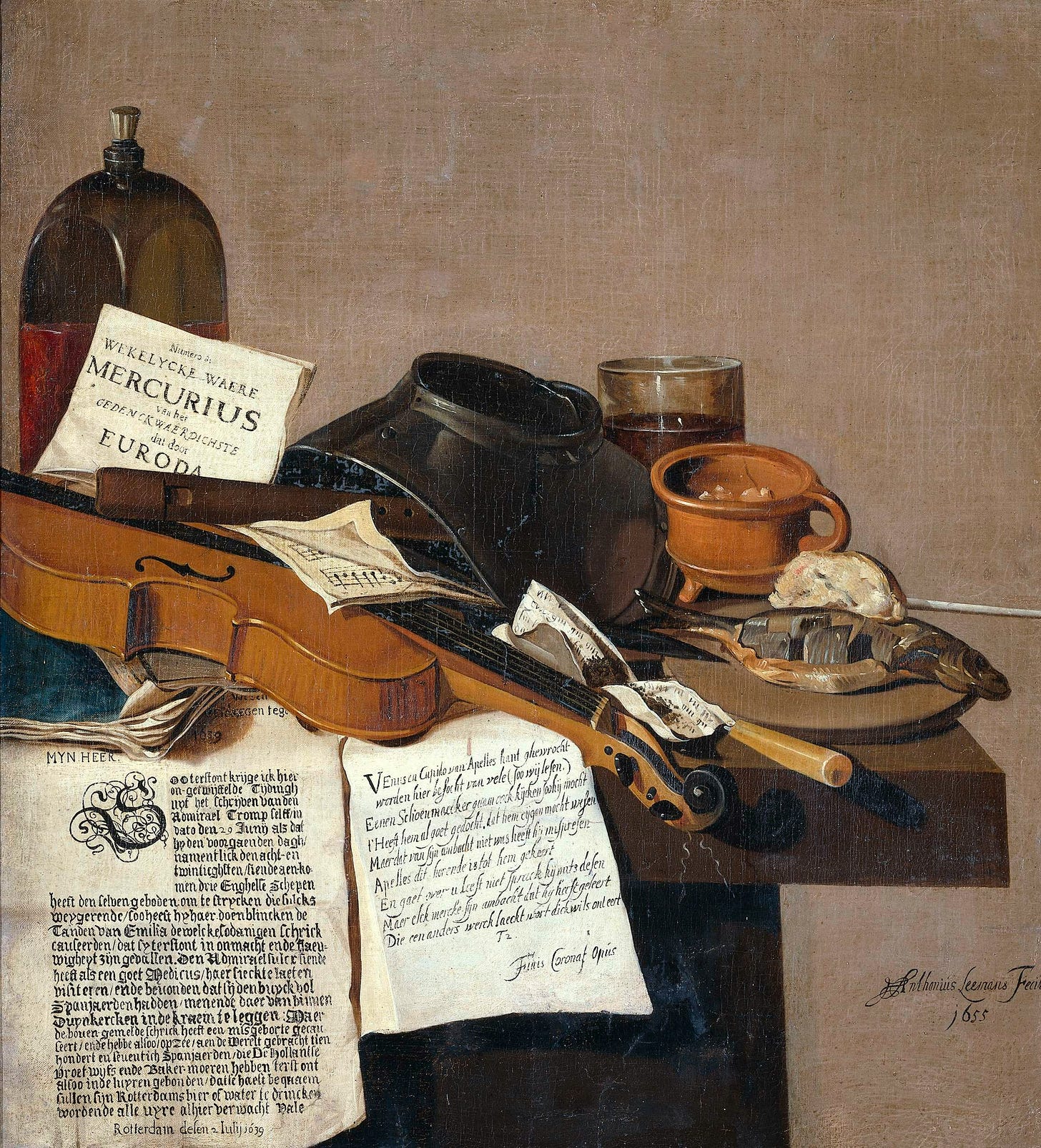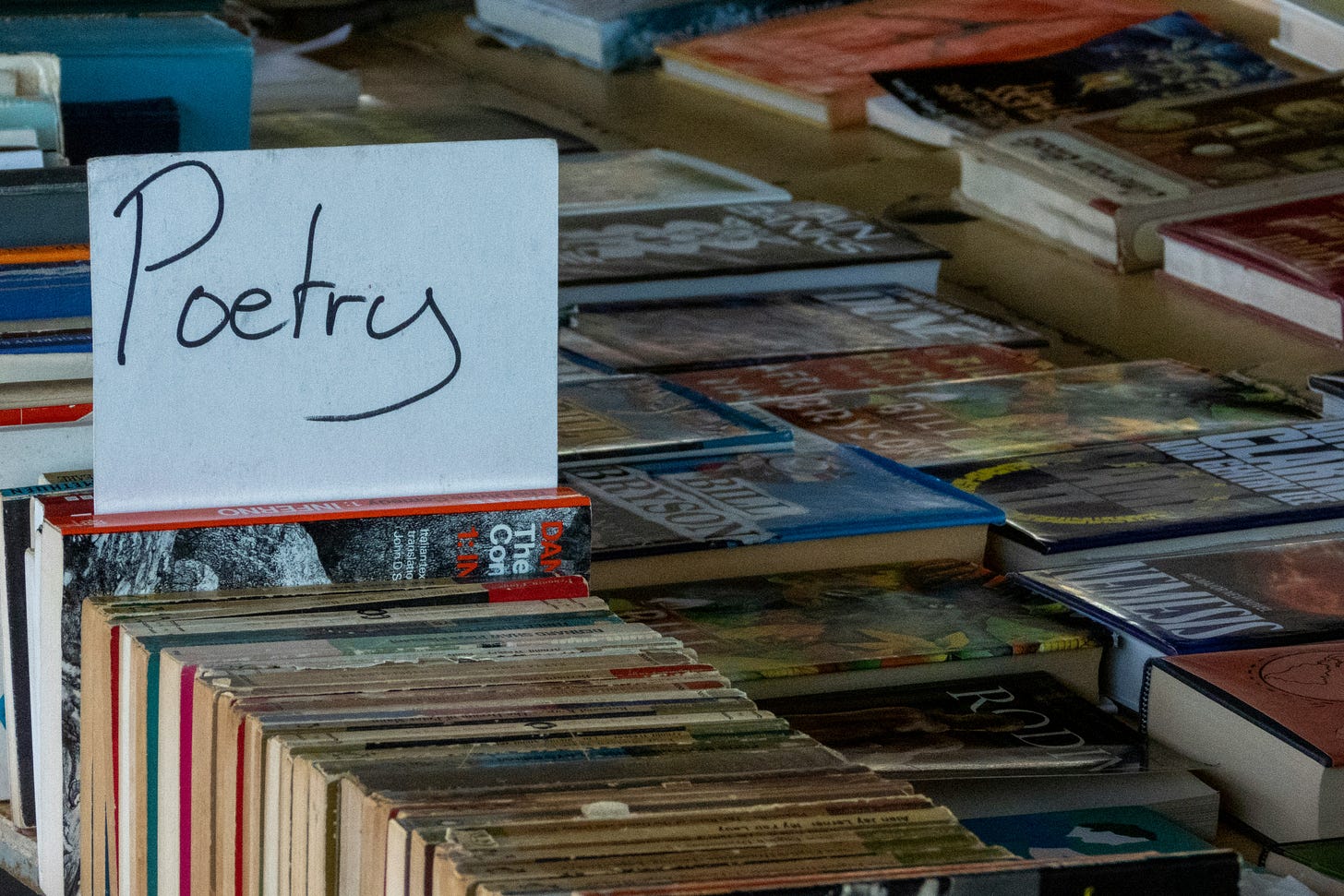Leviathan and the Hook (Part 3)
Chesterton's Critique of Dr. Dillon's Commentary on Job Continues...
“I would maintain that thanks are the highest form of thought; and that gratitude is happiness doubled by wonder.”
-Chesterton, A Short History of England.
Why does more than one-third of the Bible play with words? The answer seems obvious in the lyrical poetry of Psalms and the love poems of Song of Solomon. We instinctively know, when we read the book of Proverbs that much of it is written in the particular kind of wordplay that gives it its name. But why are such long sections of books like Isaiah, Jeremiah, and Ezekiel poetic? Why does Paul argue his points using the rhetorical strategies of his day and why does Jesus speak in parables instead of just saying what he means? Perhaps more urgent is the question, why do we treat the Bible as if it should be placed in the “how-to” section of business or psychology, or under history or science? Why do we feel like it is a put-down to place it in the poetry or literature sections?
Could the answer to these questions be why so many people who spend hours on Sundays sitting in pews and listening to sermons spend such little time the rest of the week reading, much less enjoying the Bible? We would never speak against the Bible but we open its pages about as often as we open any other textbook.
Yet throughout the centuries, people have found that, unlike a textbook, the Bible has power to draw the reader outside of themselves, to lose themselves in the play of the stories and poems and parables to the extent that another Presence joins the reader and the Bible. The Holy Spirit completes this trinity of experience and we hear the very practical, very other, voice of God.
Literacy has always gone hand in hand with Christianity. Not just the ability to make sense of what we read in the Bible, but the ability to take in those words and let them play unusual and unexpected notes in our minds. The idea is to lose ourselves in the play and the meaning of those words so that they sink down into our hearts and become our delight. Then we begin to live out of the story of the Scriptures in our day-to-day lives.
Many Bible commentators have lost the sense of play and emotion which is essential to drawing out our delight in Scripture. In this section of Leviathan and the Hook, Chesterton raises this problem and, in his usual playful way, explains why this intellectual approach often fails to illuminate the heart of the passage for the Bible reader.
Annotated Text (Part 2):
There are weaknesses in the Higher Criticism, as a general phenomenon,
which are only gradually unfolding themselves.
There are more defects or difficulties than would at first appear
in the scientific treatment of Scripture.
But after all the greatest defect in the scientific
treatment of Scripture is simply that it is scientific.
The professor of the Higher Criticism is never tired of declaring
that he is detached,
that he is disinterested,
that he is concerned only with the facts,
that he is applying to religious books
the unbending methods which are employed
by men of science towards the physical order.
If what he says of himself is true, he must be totally unfitted to criticize any books whatever.
Books exist to produce emotions:
if we are not moved by them
we practically have not read them.
If a real book has not touched us
we might as well not have
touched the book.
In literature to be dispassionate
is simply to be illiterate.
To be disinterested
is simply to be uninterested.
The object of a book on comets, of course, is not
to make us all feel like comets;
but the object of a poem about warriors is
to make us all feel like warriors.
It is not merely true that the right method for one may be
the wrong method for the other;
it must be the wrong method for the other.
A critic who takes a scientific view of the Book of Job
is exactly like a surgeon
who should take a poetical view of appendicitis:
he is simply an old muddler.
Chesterton is just getting started in his play with Professor Dillon! More next week.




You’re making me want to pick up Chesterton to get to know him better. I love the part about the words of the Bible sinking into our hearts and becoming our delight which in turn draws us into living day in and day out as Christ calls to work beside Him.
“ The idea is to lose ourselves in the play and the meaning of those words so that they sink down into our hearts and become our delight.” Thoughtfully and beautifully said, Randy. Thank you for reigniting the desire to fall into the pages of the Bible once again! 🩵